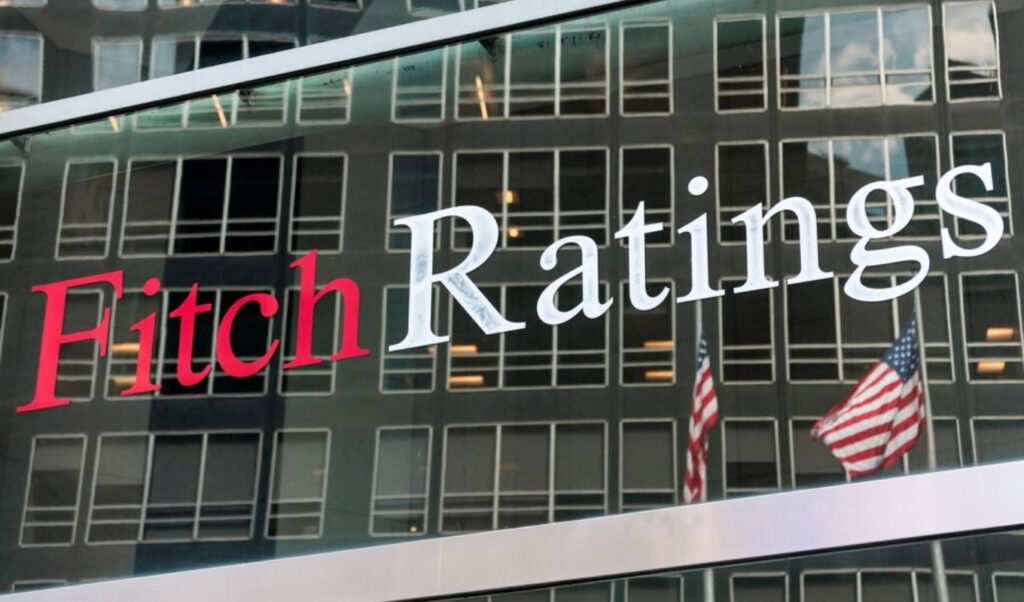The credit rating agency Fitch has upgraded Greece’s creditworthiness to BBB with stable outlook, from BBB- with positive outlook, representing a vote of confidence in the Greek economy. The upgrade cites steady public debt reduction, which is expected to fall to 120% of GDP by 2030, a prudent and reliable fiscal framework, low financing risks, and resilient economic growth at rates higher than the eurozone average. It should be noted that Fitch granted investment grade status to Greece in December 2023 and upgraded the country’s outlook to positive in May this year.
The Fitch upgrade confirms that Greece is changing levels
According to National Economy and Finance Minister Kyriakos Pierrakakis, “Today’s Fitch upgrade confirms something that is now visible to everyone: Greece is changing levels. At a time when we are implementing the largest tax reduction of the post-democracy era, providing real relief to households and businesses, a leading international rating agency recognizes the dynamism of the Greek economy. This proves that we can reduce taxes, support society and simultaneously strengthen Greece’s economic credibility.
The Fitch upgrade affects every citizen, because it means lower costs for the state, more liquidity for businesses, easier access to financing and greater certainty for investments that create new jobs. It strengthens institutional investor confidence and expands the pool of capital that can be invested in Greek bonds and assets, which overall improves the financing terms of our economy.
Today’s decision confirms that Greece is building a new position in Europe’s investment and economic environment. We continue our efforts for a Greece that is stronger, more modern and more just for all.”
Another vote of confidence for Greece
Deputy Minister of National Economy and Finance Nikos Papathanasis stated: “The announcement by Fitch Ratings, following all the developments that led to our country’s recovery of investment grade status after a full 15 years, represents another vote of confidence in Greece. It comes to confirm once again the international recognition of the credibility, consistency and effectiveness of the pursued development economic policy with fiscal responsibility and social orientation, which is steadfastly followed by the governments of Kyriakos Mitsotakis. But also the positive prospects opening up for the Greek economy. For maintaining growth rates well above the European average. For further strengthening investments. For even greater reduction of public debt as a percentage of GDP. For even greater tax reductions. For improving competitiveness and expanding business access to banking institutions. But mainly, for creating even more new jobs for everyone.
In an environment of political stability, despite the adverse winds blowing internationally, but also equally stabilized macroeconomic indicators, with the same prudence, we are accelerating the reforms the country needs to achieve the goal of dual convergence with the rest of Europe, both in terms of income and balanced development throughout the territory. With the same dedication, we are accelerating the practical implementation of our commitments with the goal that every euro from European and national resources be utilized for the benefit of the economy and society. With the same systematicity and realism, to feed the virtuous cycle that transforms collective progress into individual prosperity.”
How Fitch reached the upgrade
Greece’s credit rating upgrade reflects the following key assessment factors and their relative importance:
Steady debt reduction: Fitch forecasts that gross public debt as a percentage of GDP will decrease by 9 percentage points in 2025, reaching 145%, following a 10 percentage point reduction in 2024. This remains nearly triple the average level of countries with “BBB” rating (52%), but is more than 60 points reduced from the 2020 high (209%), reflecting the largest post-pandemic reduction among Fitch-rated states. “We expect debt to continue declining rapidly medium-term, approaching 120% by 2030, according to our baseline scenario, supported by 4% nominal GDP growth and primary surpluses of 3.5% of GDP after 2027. Cash reserves remain at historically high levels, around 18% of GDP, allowing early repayment of bilateral loans and covering maturities for the next three years,” the agency notes.
Continued strong fiscal performance: Fitch forecasts a general government budget surplus near 1% of GDP this year, similar to the strong 2024 performance (1.3%), and a primary surplus of 4.8%. This represents significant improvement from the 1.4% GDP deficit in 2023 and compares very favorably with the current average deficit of 3.7% for BBB-rated countries. The strong performance reflects structurally higher revenues due to improved tax collection and strict expenditure control, the agency notes.
Moderate fiscal loosening: Given the strong initial position, “we expect the 2026 budget to remain in surplus, despite fiscal loosening measures included in the draft budget,” Fitch notes. Planned personal income tax reductions will have the largest fiscal impact, estimated by the government at €1.2 billion (0.5% of GDP) and increasing to €1.6 billion in 2027. This will boost real disposable income, mainly for middle-income households, which in turn will support growth. An additional €600 million will be spent on rent subsidies and support for low-income pensioners, and €300 million for defense sector salary increases.
Prudent and reliable fiscal framework: Recent fiscal results and the 2026 draft budget underscore the government’s consistent commitment to fiscal prudence, the agency notes. “We consider this commitment particularly credible, as it is supported by post-pandemic period results and broad social consensus for implementing sound fiscal policies.” In July 2025, parliament approved with a large majority a domestic fiscal rule requiring balanced primary balance. Greece exceeded the requirements of the EU’s new fiscal framework in 2024, the first year of its implementation.
Low financing risks: Greece’s favorable debt profile, with a long average maturity of 19 years and favorable interest rates, as well as very large cash reserves, significantly reduce market risks and provide protection against potential disruptions due to bond market volatility. The growth-interest rate differential is favorable, with average debt interest rates around 1.5%, much lower than the estimated nominal GDP growth trajectory of approximately 4%.
Medium importance
Resilient economic growth: The Greek economy is on a steady growth trajectory, despite recent external challenges, including geopolitical and trade disruptions. GDP growth has averaged around 2% since 2023, exceeding the eurozone growth rate. “We forecast growth will remain around 2%, at least until 2027, with continued convergence toward eurozone income levels. Domestic demand will remain the main growth driver, benefiting from the final years of investment boost from Next Generation EU (Recovery Fund), further improvement in household balance sheets and steady employment growth.
Other assessment factors
Fundamental credit strengths and weaknesses: The ratings are supported by per capita income levels above the average for BBB-rated countries and governance indicators comparable to them, as well as by a reliable policy framework supported by EU and eurozone membership. Fiscal and macroeconomic adjustment have accelerated in recent years, based on improving fundamentals and policy credibility. These advantages are offset by the legacy of the public debt crisis, particularly very high but steadily declining public debt, significant loss of economic output, persistent external imbalances and potential banking sector liabilities.
Large and persistent current account deficit: The current account deficit has hovered around 6% of GDP since 2023, significantly higher than the BBB country average of 0.3%. Structurally, the low savings rate is the main reason for the significant current account deficit, while import-intensive investments are expected to intensify pressure medium-term. “Eurozone membership mitigates external financing risks and we do not expect disruptions to external capital flows,” Fitch notes.
Banking sector strengthening: Fitch upgraded the ratings of all four systemic banks to investment grade during 2025, reflecting improvements in Greece’s business environment and banks’ credit profiles, including a longer track record of healthy profits, completion of most asset quality cleanup, strengthened capital position and stable deposit-based funding. Fitch expects the banking sector to benefit from resilient economic growth, continued business development and gradual retail sector recovery.
Bank-sovereign interconnection: A legacy issue from the debt crisis is the uniquely close interconnection between the state and banks due to the large share of deferred tax credits (DTC) in bank capital (end-June 2025: €12 billion or 45% of common Tier 1 capital). DTCs remain a contingent liability for the state, which does not exist in any other eurozone member state, despite recent bank plans to accelerate DTC amortization, which would help normalize their capital structure. Additionally, state guarantees for senior tranches of the Hercules program, which aimed to accelerate non-performing loan reduction in the banking system, amount to approximately €18 billion or 8% of 2025 GDP at end-September 2025.
ESG-Governance: Greece has an ESG score of “5[+]” for political stability and rights, as well as for rule of law, quality of institutions and regulations, and corruption control.




